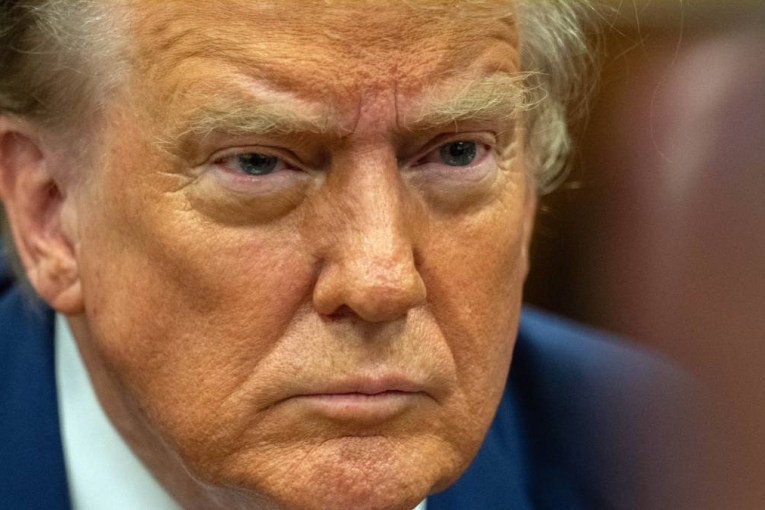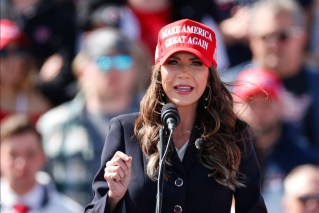Even after a hellish week, a second term for Donald Trump is not that far-fetched

After experiencing political nightmare after political nightmare, it may seem like a second term as US President would be far-fetched for Donald Trump.
Not by a long shot, experts say.
The week began with The Atlantic revealing President Trump had called fallen and captured US service members “losers” and “suckers” and was bookended by the revelation that he understood how serious the coronavirus threat was despite downplaying it to the nation.
Yet in spite of the revelations, pundits can still see a road for Mr Trump to hold the White House for four more years on November 3.
Australian-based experts told The New Daily it would be ‘foolish’ to expect this week to have any real effect on voters, with some saying these scandals will only further galvanise his base.
Associate Professor at the United States Studies Centre, University of Sydney, Brendon O’Connor said the book by esteemed US journalist Bob Woodward would have little impact on the polls.
“How deep this goes into the American voting class is always hard to tell,” he said. “But does any of it surprise us? A lot of it we’re aware of.”
Almost 200,000 US citizens have died from COVID-19 and although the public knows President Trump lies, what he says about the virus has an impact, Professor O’Connor said.
“I think the revelations are more significant in regard to Trump not following expert advice, he lies all the time. But the very fact the US President said it’s like the flu, it’s hard for people to ignore it.”
The University of Melbourne’s Associate Professor in American Politics Tim Lynch said the latest scandals will have little effect because voters have already decided.
“There are fewer swing voters this time around than there were four years ago,” Professor Lynch said.
“In the three biggest swing states Florida, Pennsylvania and Wisconsin last election there was about 13 per cent of voters undecided.
“This time, with six to seven weeks to go, the number of undecided voters in all those states has halved.”

Polls currently show President Trump losing by eight points. Photo: Getty
Mr Trump may have had a bad run in the polls this week, with the latest showing Mr Biden with an eight-point lead but historically President Trump has the most stable approval ratings of any president.
It’s because Americans, increasingly polarised over the course of his presidency, have already made up their minds, he said.
“Those that love him think he can do no wrong. For those that hate him, he’s beyond redemption. So It hasn’t really changed that much,” he said.
“What could he do to change it? He joked himself he could walk down 5th Avenue and shoot someone and get away with it.’’
This election will primarily be won by the candidate Americans think will do the best job of rebuilding the nation, he said.
“The usual pattern is voters think about the economy. Of course COVID-19 complicates that, but it also reduces it to an economic question,” he said.
“Given the profound hit to the US economy, I think it’s a referendum on which man is placed to lead the recovery from this.”
The end of the loyal opposition?
President’s Trump’s campaign aim is to shift the conversation away from COVID-19. Mr Biden’s is to keep it there.
But even if Mr Trump loses this battle, more like him will come after, said La Trobe lecturer in international politics, Ben Habib.
“It’s hard to see how you can put this genie back in the bottle. The bird has flown and this type of behaviour has been normalised,” Dr Habib said.
Evading scrutiny, dodging the truth and telling the public lies are tactics of Mr Trump’s that other right-wing politicians are already mirroring around the globe, he said.

The election will come down to who voters think can rebuild the economy, experts say,
“These kinds of behaviours, the ritual lying, this is backed into right-wing politics now because it has proven to be a tactic that works.”
And it feeds into the increasingly polarised public debate perfectly, rupturing America’s ability to find common ground and galvanising fervent supporters on each side, he said.
“Western liberal democracy is premised on the idea of having a loyal opposition. So even if you lose, you still respect the institutions and that’s what keeps the state together and functioning.
“This polarisation, this discourse, is destroying the idea of the loyal opposition and that’s the whole thing that prevents political factions from fighting to see who wins. If you can’t do politics, then it defaults to conflict.”






